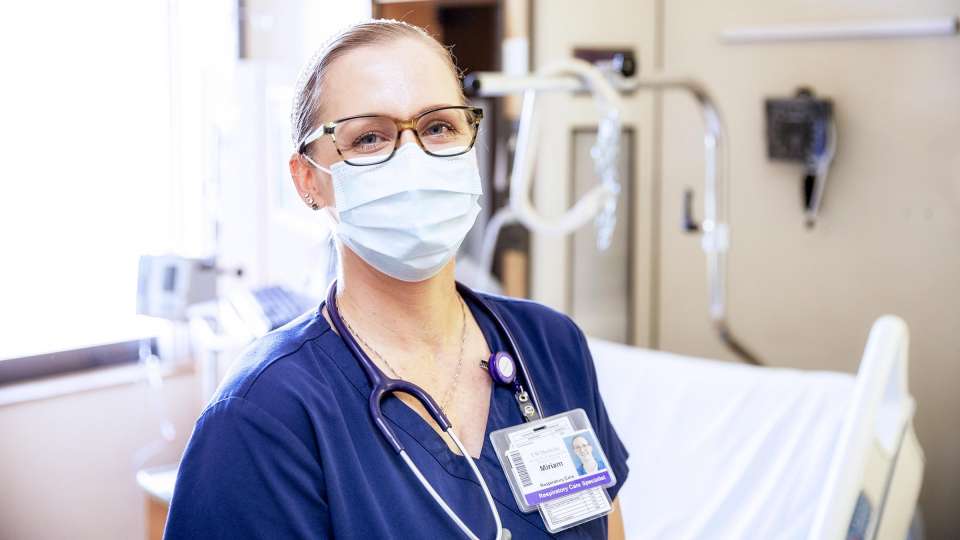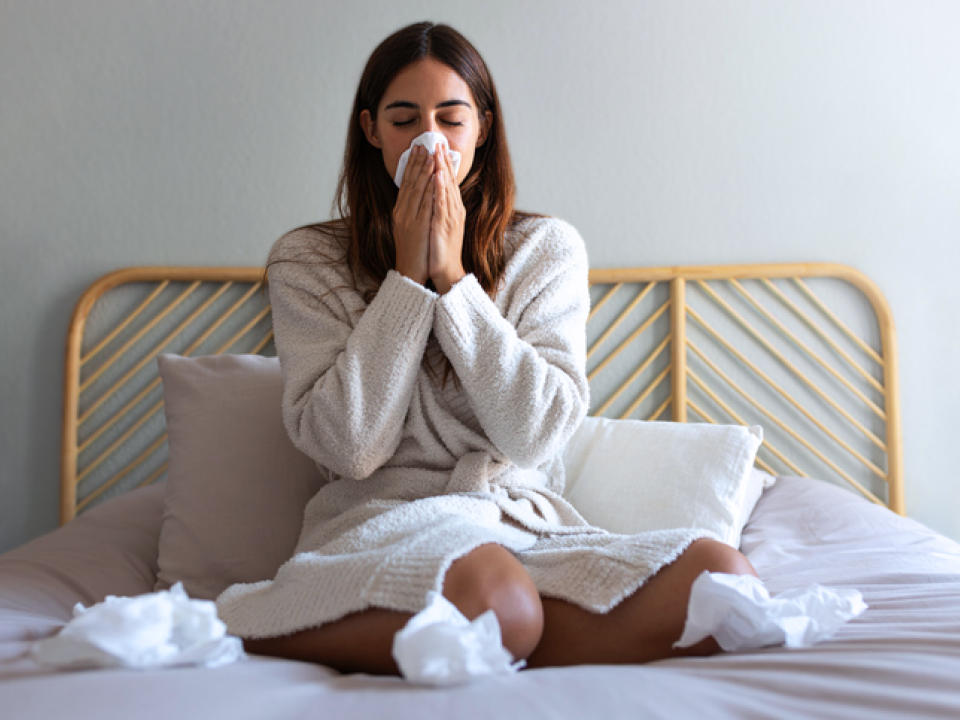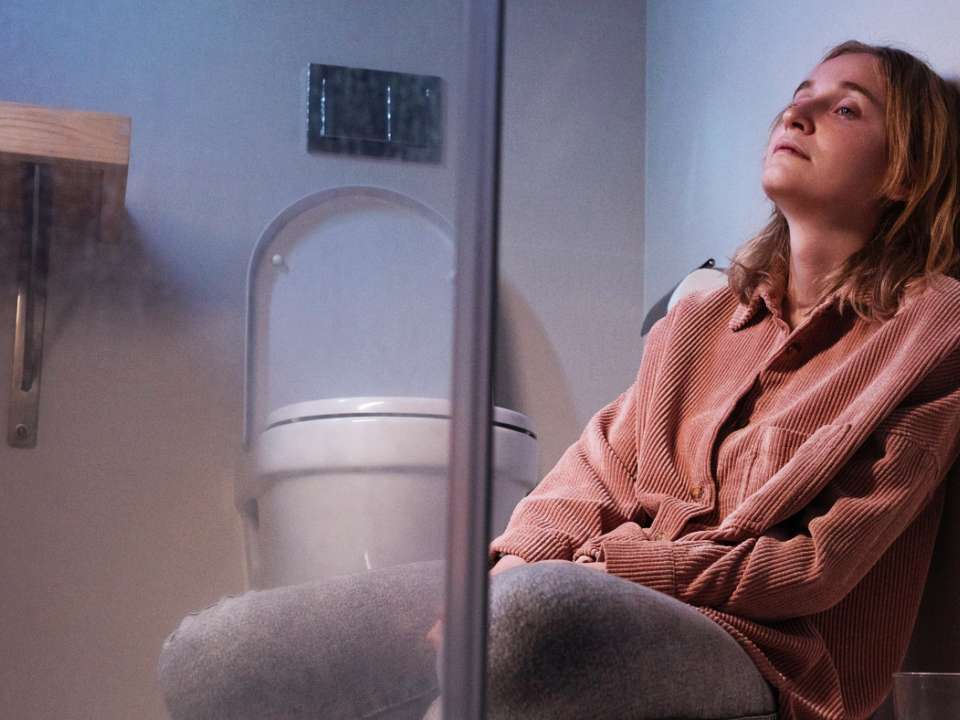
The COVID-19 pandemic has canceled a lot of things this year: birthday parties, summer vacation plans and all those get-togethers you’d normally be having with your friends and family.
But one thing that’s not canceled? Appointments for your health and well-being.
While you know taking care of yourself is important, especially during a public health crisis, it’s tough to decide when it’s OK to be around other people and when it’s not.
So how can you evaluate whether that doctor’s appointment is worth going to? And how can you protect yourself while you’re there?
Dr. Paul Pottinger, director of the Infectious Diseases and Tropical Medicine Clinic at UW Medical Center – Montlake, explains why hospitals are safe right now and what you can expect during a pandemic-era appointment. (Spoiler alert: Masks are a must.)
Is it safe to go to the hospital or clinic during COVID-19?
“Patients should have full confidence that going to the hospital or a clinic is a safe experience,” Pottinger says.
In fact, he reasons it’s probably safer to go to a hospital right now than it is to go to a restaurant or a friend’s house. Why?
“Within healthcare, we have total control over the environment — it’s clean and people who have symptoms are handled in a very specific way,” he explains. “At a social gathering, there’s no such oversight.”
Think of it like this: Everyone at your doctor’s office, whether it’s the person sitting in the waiting room or the medical assistant taking your vitals, has been screened for symptoms and is required to wear a mask. That chair you’re sitting on and that doorknob you just touched have been cleaned thoroughly and frequently, too.
At a restaurant or other public setting, however, you don’t know if people who are experiencing COVID-19 symptoms are near you, you can’t control if someone else is wearing a mask and you can’t guarantee the sanitation situation of your surroundings.
“When medical clinics abide by public health guidelines, that makes them very safe — way safer than social gatherings that are not for medical reasons,” Pottinger notes.
In that sense, if you feel comfortable enough to eat out at a restaurant, you should feel even more comfortable going to a hospital.
And if you’re considering an appointment at a clinic that you’re unfamiliar with, visit their website or call ahead to ask about their safety practices. If they don’t support universal masking, enhanced personal space and screening for patients and employees, you may want to find a different clinic that does.
What appointments should you keep or postpone?
OK, so your doctor’s office is safe compared to most businesses and social settings. But should you keep that appointment or simply postpone it?
It all comes down to the type of appointment you need and how it may impact your health and quality of life, Pottinger says.
Those microdermabrasion appointments at your medi spa, for example, may help your skin look great, but they don’t affect your overall health and well-being. In this case, you might be more inclined to postpone your appointments until after the pandemic.
But talking with your mental health therapist about anxiety or depression? Seeing an OB-GYN or midwife for routine maternity care? Having a surgical procedure done to relieve chronic pain? Those are all pretty good reasons to keep your appointment.
Ultimately, if you still have concerns, talk with your doctor about what they’re doing to keep their office or clinic safe.
As for unplanned medical situations that might require a visit to an urgent care clinic or an emergency room, Pottinger notes it’s even more important not to delay your care.
“If people are acutely ill, they should be seen by a healthcare professional period,” he says. “I’m heartbroken by the idea of people staying away from healthcare because they’re afraid of catching COVID-19.”
What appointments should be in person versus virtual?
If you decide to keep your healthcare appointment, you may be wondering if an in-person one is appropriate or if you should switch to a virtual one instead.
Some appointments, like that one with your mental health therapist, are certainly possible to do virtually. So are appointments for ailments like allergies, rashes, pink eye, sprains and UTIs.
And, thankfully, more healthcare organizations like UW Medicine have stepped up their telemedicine capabilities to connect patients and their doctors via video calls.
Still, this won’t work for all types of appointments.
“We can’t thoroughly assess your health from 6 feet of distance, and we can’t do surgeries at a distance,” Pottinger says.
That means things like surgical procedures, flu shots, maternity care, cancer screenings, dentist visits and emergency care for strokes, seizures and heart attacks all fall squarely in the in-person category.
What safety measures should you notice at an appointment?
Once you go in for your appointment, you’ll probably see that things are a little different than pre-pandemic times.
Your hospital or doctor’s office should have these basic safety measures in place: screening for COVID-19 symptoms at the entrance, required masking for anyone who enters the building and enforced physical distancing.
Some hospitals, like the ones at UW Medicine, are also taking additional steps by limiting the number of visitors allowed into their facilities and testing admitted patients for COVID-19.
“We have a safe operation here at UW Medicine,” Pottinger says. “Our protocols and procedures have been held up as a model for healthcare throughout the country.”
On a personal level, you can help yourself feel even more protected by wearing a mask at all times, unless your doctor asks you to take it off to assess your health. You should also keep 6 feet of distance from other patients while you’re waiting in line or sitting in the waiting room. And you may want to bring hand sanitizer with you so you can clean your hands after touching surfaces and when your appointment is over.
“There should be an expectation that healthcare professionals are following robust protocols,” Pottinger says. “Our protocols have been built thoughtfully and carefully — and they work.”
The info in this article is accurate as of the publishing date. While Right as Rain strives to keep our stories as current as possible, the COVID-19 pandemic continues to evolve. It’s possible some things have changed since publication. We encourage you to stay informed by checking out your local health department resources, like Public Health Seattle King County or Washington State Department of Health.

 Healthy ideas for your inbox
Healthy ideas for your inbox





